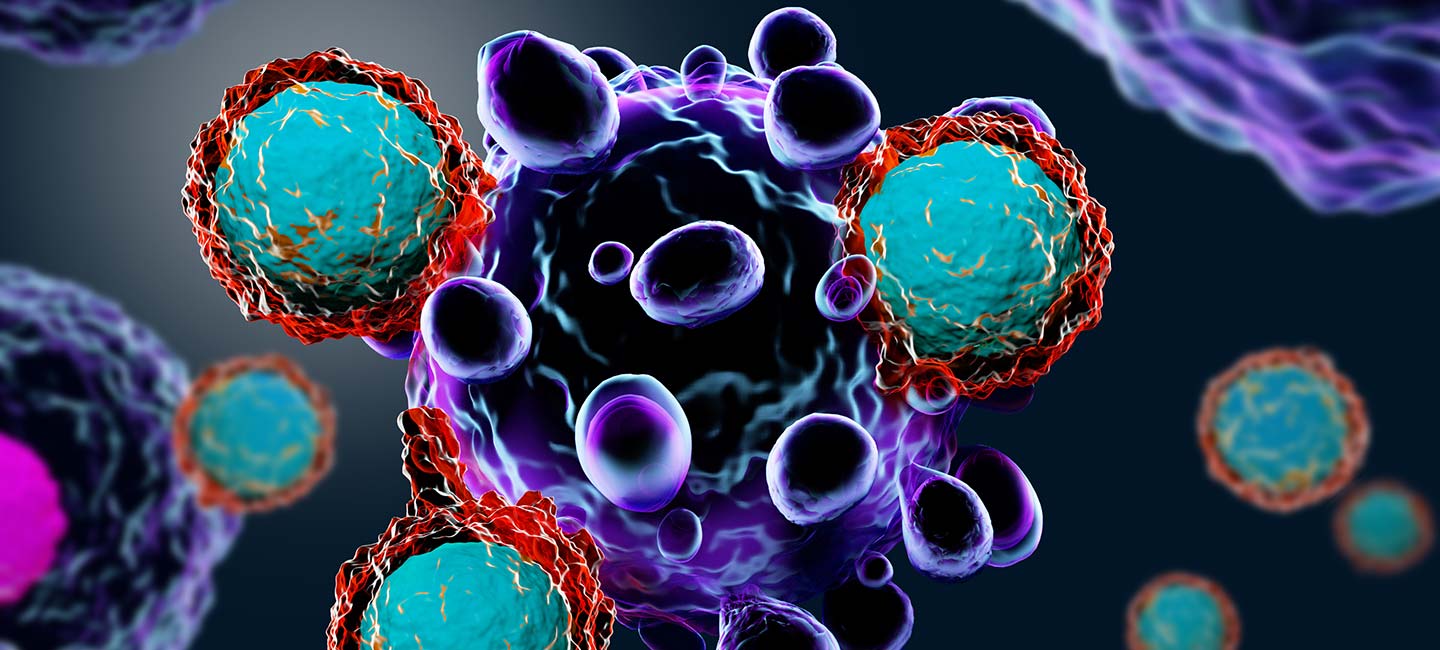Can Tumor Mutations Cause Resistance to Cellular Immunotherapy?
Chimeric antigen receptor T-cell therapy, or CAR T, has been a huge breakthrough for certain types of blood cancers. First approved in 2017, the therapy uses a patient’s own immune cells, which are removed and sent to a lab where they are genetically engineered, adding a receptor to help them better seek out cancer cells. Once infused back into the patient, the CAR T cells can easily find and attack the tumors.
One specific type of CAR T-cell therapy, axicabtagene ciloleucel (Yescarta®), has had great success in diffuse large B cell lymphoma patients who have failed two or more therapies. However, it isn’t for everyone. Studies have shown that while many patients do respond to this therapy, only 40% have durable long-term remissions. But little is known about why that is the case.
Moffitt Cancer Center researchers, in collaboration with the University of Miami Miller School of Medicine, are hoping to find the answer. They are taking a closer look at genetic changes within lymphoma tumors to determine if there are any specific mutations driving resistance to CAR T therapy, specifically axicabtagene ciloleucel. Their findings are being presented at the Society of Immunotherapy of Cancer annual meeting.
For this study, researchers analyzed the biopsies of 28 diffuse large B cell lymphoma patients that were obtained within one month before their CAR T-cell infusion. Using whole genome sequencing, they looked at mutations and events going on inside the tumor microenvironment.

Dr. Michael Jain, Assistant Member, Department of Blood and Marrow Transplantation and Cellular Immunotherapy
“Whole genome sequencing is a really interesting technology because not only is it able to identify specific mutations that may be present in one person’s lymphoma that are not in another, but it can also see the larger chromosomal rearrangements that may occur in some cancers,” said Dr. Michael Jain, assistant member of the Department of Blood and Marrow Transplantation and Cellular Immunotherapy.
Jain says a particular area of interest is something called chromothripsis, which is a wide scale genomic set of rearrangements — sort of a blowing up of the chromosomes — that can occur in cancers.
The researchers found there were some genomic rearrangements that were associated with a poor outcome or relapse after CAR T, specifically patients who had very complicated chromosomal rearrangements, like chromothripsis. They also discovered specific types of rearrangements associated with certain mutations that related to a poor response to CAR T cell therapy.
“The next step for us is to understand how these mutational changes, which is something that is hardwired into the DNA of these lymphomas, relate to how the lymphomas function in their tumor microenvironment and what types of immune cells infiltrate them. CAR T cells are immune therapy and those engineered T cells have to get into the tumor to work. Our study will help to understand the mechanisms by which lymphomas can resist CAR T-cell therapy,” said Jain.



